Search
02552 CORROSION OF TITANIUM GRADE 7 IN SOLUTIONS CONTAINING FLUORIDE AND CHLORIDE SALTS
Also Purchased
03455 DEFINING THE CORROSION PERFORMANCE WINDOW FOR GRADE 28 TITANIUM
Product Number:
51300-03455-SG
ISBN:
03455 2003 CP
$20.00
03453 EFFECT OF Fe(III) LEVELS ON THE CORROSION RESISTANCE OF TITANIUM ALLOYS IN HCI SOLUTIONS
Product Number:
51300-03453-SG
ISBN:
03453 2003 CP
$20.00
07183 Corrosion Performance of Titanium Grade 38
Product Number:
51300-07183-SG
ISBN:
07183 2007 CP
Publication Date:
2007
$20.00




